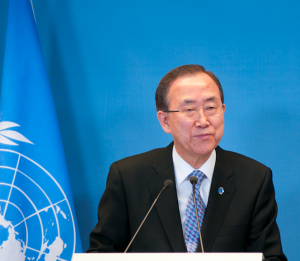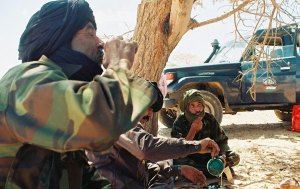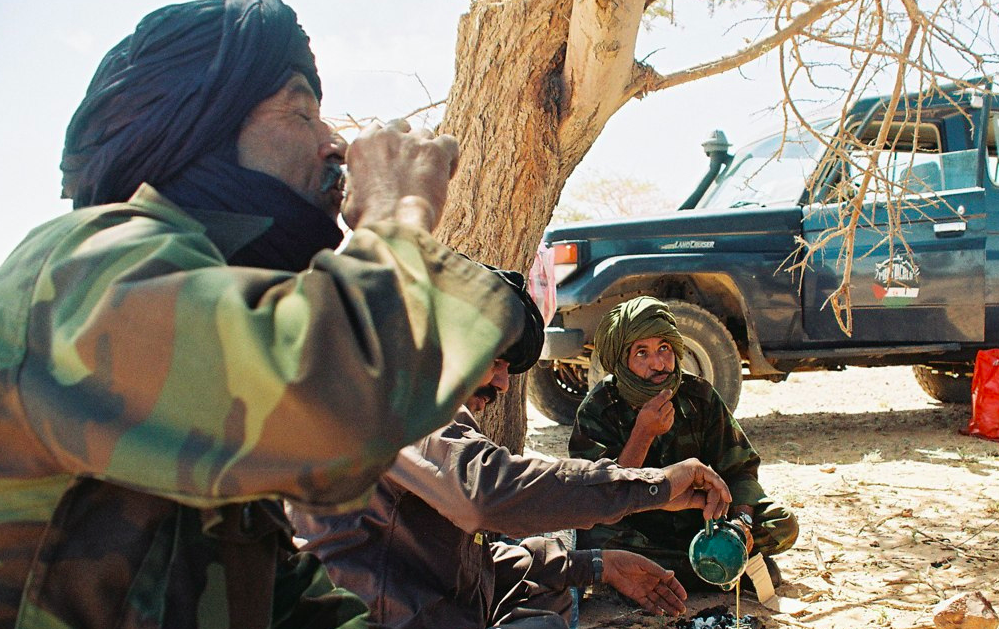
Ban Ki-Moon’s criticism of Morocco’s 40-year “occupation” of Western Sahara during his visit to the territory on March 8, 2016 has sparked the most serious crisis in the region in decades.
Morocco denounced the Secretary General’s “biased” rhetoric, and “irreversibly” expelled U.N. peacekeepers stationed in Western Sahara.
The U.N. Mission for the Referendum in Western Sahara (MINURSO) peacekeeping force has been deployed to Western Sahara since 1991 to enforce a ceasefire between Morocco and the Sahrawi liberation movement and to organize an independence referendum. The fighting has largely stopped in that time, but MINURSO has failed to organize the referendum.
The U.N. has since sought to clarify the Secretary General’s remarks, confirming that Ban did use the word “occupation” but that this was merely a “personal reaction to the deplorable humanitarian conditions in which the Sahrawi refugees have lived for far too long.”
But Ban Ki-Moon is right. Morocco’s annexation of Western Sahara since 1975 is an illegal occupation of lands over which it has no legal or legitimate claim to sovereignty, as confirmed by the International Court of Justice.
Western Sahara is considered a colony under international law. The Sahrawi people are legally entitled to self-determination: to vote in a free and fair referendum on whether they wish to form an independent state, or remain a part of Morocco.
Given the limited attention paid to Western Sahara in recent decades, exasperated analysts have warned that a crisis may be required to force the international community to take the conflict seriously.
Far from a gaffe, the Secretary General’s remarks have succeeded in temporarily directing world leaders’ attention towards Western Sahara again.

When the U.N. Security Council meets in April to review MINURSO’s mandate, it must seize this rare moment of political opportunity to make progress towards a resolution of the conflict.
The status quo in Western Sahara is untenable. Its continuation runs counter to the interests of regional and international actors alike. The conflict is a major obstacle to a future rapprochement between Morocco and Algeria, and hinders progress on negotiations over border demarcations.
It status constrains the potential of the region’s natural resources, such as phosphates and oil, to create economic opportunities for the Sahrawi people. An EU court ruling in December 2015 struck down a free trade agreement with Morocco on the grounds that Rabat had illegally plundered and exported Western Saharan agricultural and fisheries products.
And while links between the Sahrawi self-determination movement and global jihadi terrorist networks appear unfounded, there are increasingly vocal calls from younger Sahrawis in particular to resume and intensify armed resistance against Moroccan occupation of their perceived homeland.
Decisive action must be taken now to find a diplomatic solution and secure the long-awaited referendum before tensions spill over into a resumption of armed hostilities.
First, the Security Council must issue a statement condemning Morocco’s move to expel UN peacekeepers and forcibly close a military liaison office.
Rabat is considered “a strong partner in counterterrorism efforts” and Western powers have previously been reluctant to criticize Morocco’s actions in Western Sahara.
It must nevertheless be made clear that this hostile act is unacceptable. If there is to be peace in the region, MINURSO must be free to implement its mandate without political intrusion.
Second, the Security Council must grant MINURSO the authority to monitor human rights violations in Western Sahara. The Tom Lantos Human Rights Commission held a hearing last week on this very topic.
In an attempt to stymie calls for the independence of Western Sahara, Morocco has brutally violated the human rights of the Sahrawi people over the past four decades. Of particular concern are violations of the right to have free expression, association, assembly, and to a fair trial. Moroccan police stand accused of torturing Sahrawi independence advocates and using violence against demonstrators calling for self-determination.
The Sahrawi liberation movement, Polisario Front, has also been accused of committing human rights violations in the very Tindouf refugee camps that Ban Ki-Moon visited. This includes reports of restricting refugees’ freedom to leave the camps, and that the Polisario has stifled peaceful challenges to its leadership.
In this context, MINURSO’s status as the only contemporary peacekeeping force in the world not granted the power to monitor and document human rights violations is unjustifiable.
One of the biggest obstacles to a negotiated settlement in Western Sahara is the limited access to objective information on developments on the ground. Accusations are leveled and supposed facts marshaled by both sides in a vicious partisan shouting match that has led international policymakers and foreign publics alike to disengage.
Morocco has fiercely opposed human rights monitoring, suggesting that reporting from the Moroccan National Human Rights Council (CNDH) is sufficient. But as a Moroccan state-affiliated institution, the CNDH is clearly not independent and is thus an inappropriate human rights violations monitor.
A truly independent permanent monitoring mechanism that reports directly to the Security Council is required to address this information blackout.
Finally, influential players such as the U.S., France and the U.K. should increase their political and financial support for the Office of the Special Envoy to Western Sahara, Christopher Ross.
With the backing of Washington, Paris and London, a larger staff and more frequent travel to engage stakeholders from Morocco, Algeria and the Polisario Front, the Special Envoy can play an essential role in negotiating a peace plan and referendum framework that includes an option for full independence.
Illustrious negotiators have tried and failed before Ross to bring peace to the region. Former U.S. Secretary of State, and then former Personal Envoy of the U.N. to Western Sahara, James Baker III came closest in 2003, but his ‘Baker Plan’ eventually collapsed after Western powers withdrew their support. Baker soon resigned as the U.N. Envoy.
And without sustained high-level diplomatic engagement with Western Sahara, history will repeat itself.
A golden rule of politics is to “never let a good crisis go to waste.” As the international community turns its gaze towards Western Sahara, actions taken this April can have a decisive impact upon prospects for peace in the next decade.
The UN must seize the opportunity.
